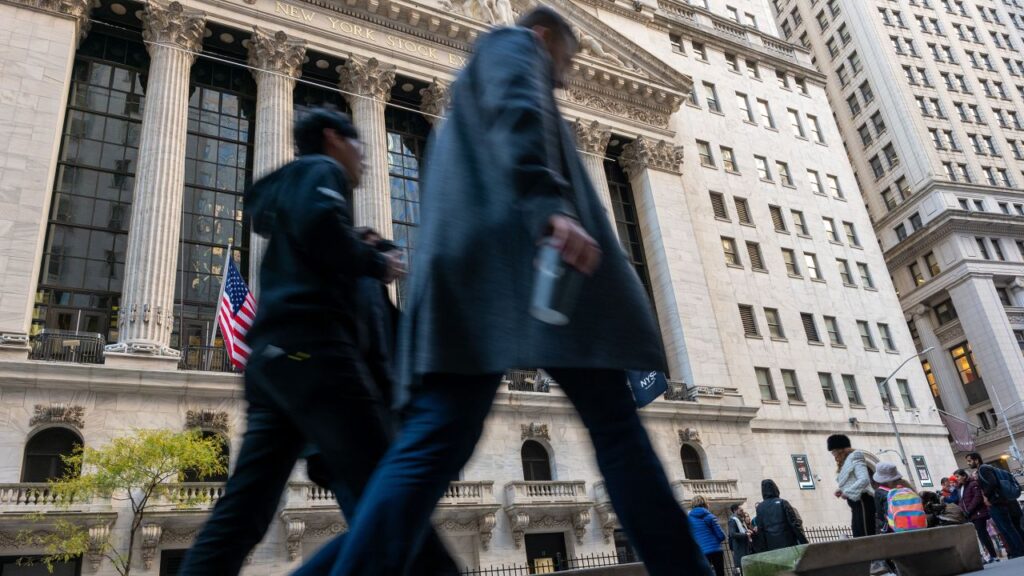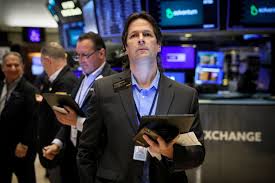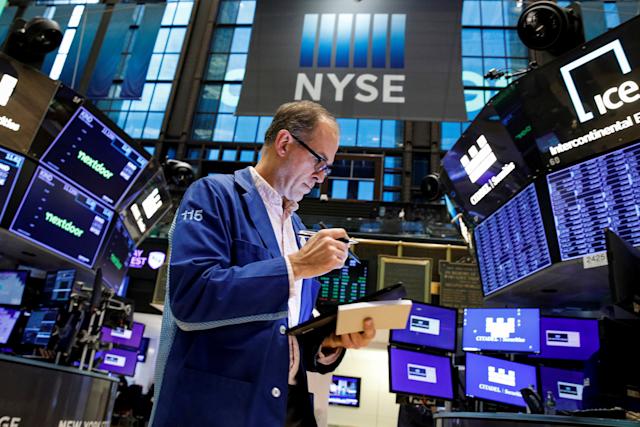Marking the beginning of a new era for the UK economy, 2021 saw the country’s exit from the European Union (EU) with a last-minute trade agreement on the movement of goods. According to analysts, the UK economy appears to have transitioned well post Brexit and although the economy has borne the brunt of the COVID-19 pandemic, the country has fared relatively well. Its Gross Domestic Product (GDP) did plummet approximate £216 billion compared to 2019, however, it showed resilience in the last quarter of 2020 as it grew 1.0% quarter-on-quarter.
With a strong economic rebound for the domestic economy expected, supported by an efficient vaccine roll-out and with leisure and hospitality businesses set to benefit from pent-up consumer demand, the country is on its way to recovery.
If you’re looking to invest in the UK economy, one way of doing so is to put your money in UK stocks. Featuring consistent performance and strong growth prospects, here we explore some of the top UK stocks you may want to consider adding to your portfolio.

How big is the UK stock market and how many stock exchanges are there?
London has long been one of the world’s leading financial cities and a well-known hub for international trade, banking and insurance. With the exception of some stock exchanges found in British crown dependencies and UK overseas territories, the UK’s primary stock exchange is the London Stock Exchange (LSE).
The second largest stock exchange in Europe and the sixth largest in the world, the LSE was established more than 300 years ago, while it is considered the most international of all stock exchanges with thousands of companies from more than 60 countries. It is also a prime source of equity-market liquidity, benchmark prices and market data in Europe. The Financial Times Stock Exchange, also known as the FTSE 100 or Footsie is the most dominant index, containing 100 of the top blue-chip stocks on the LSE.
The total market value of all companies trading in the LSE took a large hit during the early months of 2020, mainly due to a mass sell-off of shares caused by fears due to the COVID-19 pandemic. For instance, between December 2019 and March 2020, the total value of market cap decreased by more than £900 billion. Yet, the number of daily trades spiked in March 2020 and as of April 2021, the total market value of all companies trading on the LSE stood at approximately £3.88 trillion.
Top UK stocks

Unilever (ULVR)
When back in the 1890s, William Hesketh Lever, founder of Lever Brothers, jotted down his ideas for his so-called Sunlight Soap, his new product helped make cleanliness and hygiene popular during Victorian England, a time when having a shower or taking a bath were not regarded essential. The company that we know today was founded in 1929, following the merger of the soap maker with Dutch margarine producer Margarine Unie. As a result, the company diversified its portfolio and expanded its operations worldwide. Today it boasts an extensive range of products, ranging from food staples like confections, baby food, juices, frozen pizza, margarine and breakfast cereals to beauty products and personal care, as well as pharmaceutical and consumer healthcare products. With over 400 brands, some of its top products include Axe/Lynx, Dove, Hellmann’s, Knorr, Magnum, Sunsilk and many others.
Despite the challenges posed by 2020 and the global COVID-19 pandemic, Unilever has had a strong year. In the first nine months of 2020, its underlying sales grew 1.4%, with positive growth across categories like beauty and personal care, foods and refreshment and home care, as demand for these products remained high. Then, on April 29, 2021, the company released its first-quarter earnings, reflecting a positive start to 2021 and marking an underlying sales growth of 5.7% for the quarter.
On the day of its first-quarter results, the stock was trading higher, even though its share price is hardly 3% higher from where it was a year ago. But despite this somewhat lacklustre performance, the stock has consistently offered solid margins and returns on capital, which helps to explain why the share price is up 38% over the last 5 years. In contrast, the FTSE 100 is up 12% in the same time frame.
On the other hand, Unilever’s dividend has remained in place throughout 2020, rising in line with yearly increases. The company also announced a buyback programme of up to €3 billion to be completed by the end of the year, reflecting its strong free cash flow delivery and balance sheet position. With plans to create a new unit by the name of Elida Beauty, in addition to the positive outlook as the company is targeting underlying sales growth of 3-5% in 2021, Unilever’s growth seems stable for the foreseeable future.
Add Unilever (ULVR) stock to your portfolio.

AstraZeneca plc (AZN)
For years, it has been most famous for its fast-growing and cutting-edge cancer medications like Tagrisso, Imfinzi and Lynparza, however, in 2020, the pharmaceutical and biotechnology company stole the spotlight when it developed the Oxford-AstraZeneca COVID-19 vaccine. Founded in 1999 following the merger of Swedish Astra AB and the British Zeneca Group, since then, the company is amongst the world’s largest pharmaceutical companies with a portfolio of products for major diseases in areas like oncology, cardiovascular, gastrointestinal, infection, neuroscience, respiratory and inflammation.
In January 2021, India was the first country to approve the use of the Oxford-AstraZeneca vaccine, while during the same month, the European Medicines Agency (EMA) granted a conditional marketing authorisation for the vaccine to be used in people 18 years and over. Big orders have come from the UK, the EU, the US and Japan. According to analysts at SVB Leerink, sales of the vaccine are expected to reach $1.9 billion this year and $3 billion in 2022. The 2021 figure could be far higher if AstraZeneca achieves its ambitious target of 3 billion doses.
Total revenue for 2020, including product sales and collaboration revenue, increased by 9% to $26,617 million, whereas product sales grew by 10%. In addition, total revenue from new medicines increased by 33% to $13,950 million. Meanwhile, the AstraZeneca stock has yo-yoed depending on news related to its vaccine and various company developments like its looming takeover of Alexion Pharmaceuticals. The stock began trading at around $50 in 2020, then dipped to $39.42 by March 20 only to reach a high of $61.10 by July 17.
The vaccine’s link to blood clots was not received well, but it’s important to note that there’s more to AstraZeneca than COVID. As one of the biggest diversified medical companies, working in big areas of medicine, sales of its other medications, such as cancer drug Tagrisso have soared, as well as that of other medicines such as Imfinzi and Lynparza.
Read our article about AstraZeneca and add (AZN) to your portfolio.

HSBC Bank plc (HSBA)
Established in 1865 to help finance trade between Europe and Asia, the very first HSBC opened its doors for business in Hong Kong and it wasn’t until 1991 when the bank took its present form and was established in London by the Hongkong and Shanghai Banking Corportation. The second largest bank in Europe with total assets of $2.984 trillion as of December 2020, its rich and colourful legacy has been plagued by a number of scandals, while it has been repeatedly fined for money laundering and for setting up large scale tax avoidance schemes. Today, the company is organised within four core business groups, namely Commercial Banking, Global Banking and Markets, Retail Banking and Wealth Management, as well as Global Private Banking, while it serves more than 40 million personal, wealth and corporate customers worldwide.
With dual primary listings on the Hong Kong Stock Exchange and the LSE, as well as secondary listings on the New York Stock Exchange and the Bermuda Stock Exchange, its shares in Hong Kong were up 2% in April 27, 2021 when the company announced that pre-tax profit in the first quarter of the year beat expectations. It also reported that profit before tax rose 79% from a year ago to $5.8 billion for the three months that ended March 31. This beat analysts’ expectations of $3.346 billion. At the same time, basic earnings per share was $0.19, up from $0.03 in the previous quarter and $0.09 from a year ago.
As for its stock, since falling to near 280p in the third quarter of 2020, its share price has bounced back to 440p mainly thanks to a more positive sentiment toward so-called cyclical stocks – stocks whose price is affected by macroeconomic or systematic changed in the overall economy and as a result, they follow the cycles of an economy through expansion, peak, recession and recovery. This rise in price represents a gain of more than 50%.
Then there’s its dividend. In 2020, the company had no choice but to suspend its payouts, however, by March of 2021, HSBC announced that it will begin offering a cash dividend payment of $0.745 per share. After making a comeback in 2021, beating analysts’ expectations and paying dividends once again, this certainly increases the stock’s appeal particularly among income investors.
Invest in HSBC Bank (HSBA) stock today.

Diageo Plc (DGE)
Headquartered in Park Royal, London, on the site of a former Guinness brewery which closed in 2004 after producing beer since 1936, Diageo is a true spirits conglomerate, with offices in some 80 countries, while it is active in around 180 countries across North America, Europe, Asia Pacific, Africa, Latin America and the Caribbean. From Baileys, Guiness, Smithwick’s and other pub favourites, every year around 50 million gallons of Irish milk goes into the manufacturing of Baileys Original Irish Cream, while its production of beers makes Diageo the single biggest user of malted barley in Ireland alone.
But as expected, consumer-discretionary stocks in the food and beverage industry have been hit hard by the COVID-19 pandemic and Diageo was no exception. According to the group’s results for the half-year ended 31 December 2020, sales fell 4.5% to £6.9 billion, while operating profit also declined 8.3%. At the same time, it’s share price has fallen 5% over the past 12 months. However, Diageo shares have proven to be resilient, outperforming the blue-chip FTSE 100 index by 7%, while over the past five years, it has outperformed the lead index by around 55%. And over the past 20 years the company’s share price has increased by 340%. The company has also marked some growth in certain areas, particularly sales in North America, which has increased by 12.3% and which has helped to offset declines in other regions.
And as consumption trends are increasingly shifting to ready-to-drink (RTDs) beverages stemming from the closure of bars, pubs and restaurants due to the pandemic, Diageo is aiming to capitalise on this shift, leaving no stone unturned. Indeed, Diageo is set to expand its manufacturing capability by installing two can lines at a new facility in Plainfield, Ireland, which will have the capacity to produce more than 25 million cans of RTDs.
Add Diageo (DGE) to your portfolio, or read our article about Diageo here.

Rio Tinto Group (RIO)
The Anglo-Australian multinational and the world’s second largest metals and mining corporation behind competitor BHP, Rio Tinto produces iron ore for steel, aluminium for cars and smart phones, copper for wind turbines, titanium for household products and borates for crops. Although its primary operation is centred on the extraction of minerals, the company is also a heavyweight in refining and more specifically, the refining of bauxite and iron ore.
Led by Scottish entrepreneur Hugh Matheson, the company was founded in 1873 when a British-European investor group bought the Rio Tinto mines in Spain, constructed new processing facilities and introduced new techniques that allowed the newly-formed Rio Tinto company to transform itself to the number one copper producer.
In 2020, the company made it to the Forbe’s Global 2000 list as one of the largest public companies in the world and it’s not difficult to discern the reason why. With a current market cap of $135.317 billion as of May 26, the resilience of its business model together with strong commodity prices enabled the company to deliver underlying EBITDA in 2020 of $23.9 billion and return on capital employed of 27%, while its gross sales revenue was $44.6 billion, compared to 2019’s $43.165 billion.
Meanwhile, its share price was gone up by 220% over the past five years, gaining 42% in just three years, while its EPS grew by 7.2% each year. These robust results during what has definitely been a challenging year has also led to the approval of a total dividend of 557 cents per share, including a special dividend of 93 cents per share.
Reflecting its spirit of innovation, Rio Tinto has moved a step further by partnering with InoBat, a European battery technology and manufacturing company to set up a lithium battery recycling. Covering the full commodity life-cycle from mining right through the recycling of the metal, Rio Tinto’s project in Serbia, is one of the largest greenfield lithium projects in development and has the potential to produce approximately 55 thousand tonnes of battery grade lithium carbonate in Europe, an important feat when considering that the continent is one of the world's largest growing electric vehicles markets.
Buy Rio Tinto Group (RIO) stocks today.

GlaxoSmithKline plc (GSK)
With a 300-years' worth of history under its belt, GlaxoSmithKline, or GSK, is no newcomer in the pharmaceutical industry. Headquartered in London, the company is the developer of the first-ever malaria vaccine, while many of its legacy products like the likes of amoxicillin, mercaptopurine, pyrimethamine and zidovudine are listed in the World Health Organisation’s (WHO) list of essential medicines. With its roots dating back to 1715 with the opening of an apothecary shop in London. Then, in 2000, what was known at the time as Glaxo Wellcome, merged with SmithKline Beecham to create GSK, the world’s sixth largest pharmaceutical company according to Forbes as of 2019.
Just like AstraZeneca above, GSK too co-developed its own COVID-19 vaccine candidate together with Sanofi Pasteur. Using the same technology as Sanofi’s Flublok influenza vaccine, advanced clinical trials of the vaccine were delayed in December 2020 after it failed to produce a strong immune response in people over the age of 50, which in turn delayed the vaccine’s launch. Despite this roadblock, in July 2020 the UK government signed up for 60 million doses of its vaccine, while the company also agreed to a $2.1 billion deal with the U.S. to produce 100 million doses of the vaccine.
With a robust financial health, total operating profit was £7,783 million in 2020 compared with £6,961 million in 2019, while the total operating margin was 22.8%. What’s more, with its 6.88% dividend yield at the time of writing, the pharmaceuticals and healthcare provider is an attractive income investment, while it also intends to maintain its dividends at the current levels of 80p a share in 2021.
Interested to invest? Here is how you can add GlaxoSmithKline (GSK) to your portfolio.

British American Tobacco plc (BTI)
When the UK’s Imperial Tobacco Company and the American Tobacco Company of the United States formed a joint venture in 1902, they created the British American Tobacco Company. With a simple strategy in mind - that of devising a superior product, pricing it as low as possible and mechanising its production - the company moved from strength to strength, becoming one of the top brands in the industry across the globe. Known for manufacturing and selling cigarettes, tobacco and other nicotine products, the company operates in around 180 countries, while its portfolio of brands includes big names such as Dunhill, Lucky Strike, Pall Mall, Rothmans and others, as well as e-cigarettes Vuse and tobacco heating device starter kit Glo.
With a primary listing on the LSE and secondary listings on the Johannesburg Stock Exchange, as well as the New York Stock Exchange, British American Tobacco is often considered a stable investment since not only has the company generated consistent revenue and earnings growth, but it also pays a high forward dividend yield, currently standing at 7.55%.
But competition is stiff. Tighter regulations for e-cigarettes could negatively impact Vuse’s growth, while its Glo devices are at direct competition with PMI and Altria’s On. Having said that, all three of British American Tobacco's New Category products gained market share against their top rivals throughout 2020.
Invest in British American Tabacco (BTI) with Moneybase Invest.
How to invest in UK stocks
Ready to buy a share of these top UK stocks? Your first step to tapping into a world of investment opportunities with Moneybase Invest is to sign up and open an account.
- Download the app from either Google Play or the Apple App Store. Alternatively, you may access Moneybase Invest on your desktop by visiting https://live.cctrader.com/
- Once you’ve onboarded successfully and have funded your account, head over to the search bar at the top of your screen and input either the company name or ticker symbol.
- Select the instrument of your choice from the list and then click on the Buy button on the window located at the bottom of your screen.
- On the New Order page, input the number of shares you would like to purchase and hit the Place Buy Order. The stock has been added to your portfolio.
Access over 20,000 Stocks, ETFs, Bonds & Funds and over 4,300 fractional US shares and ETFs on our award-winning platform, with no hidden fees and instant market execution.
Moneybase Invest is brought to you by Calamatta Cuschieri Investment Services Ltd and is licensed to conduct investment services business by the MFSA under the Investment Services Act.
Moneybase Invest offers direct market access and speed of execution and is intended for knowledgeable and experienced individuals taking their own investment decisions. The value of investments may go up and down and currency fluctuations may also affect investment performance.
The contents of this article are not intended to be taken as a personal recommendation to invest but strictly based on research and for information purposes only. Retail investors should contact their financial adviser for a suitability assessment prior to taking any investment decisions.





